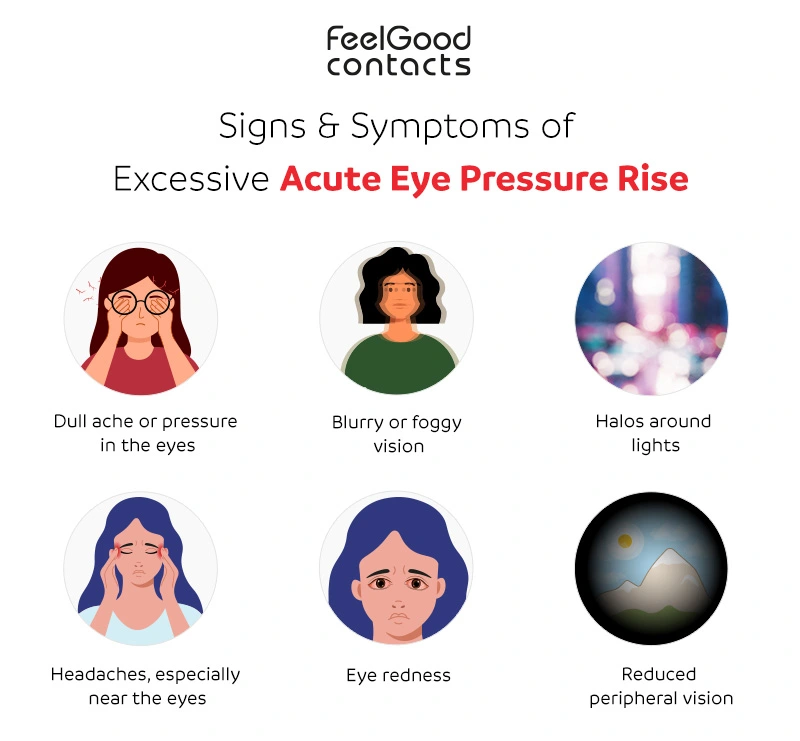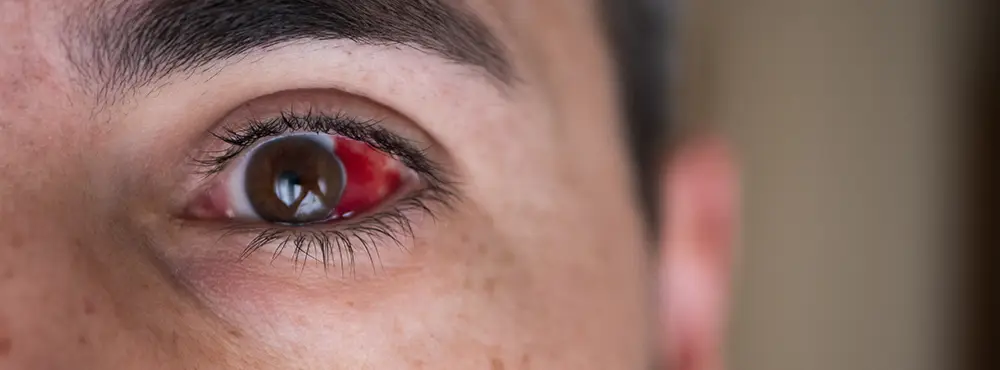Ocular hypertension also known as high IOP (intraocular pressure) is a medical condition where the pressure inside your eyes is higher than the ‘normal range’ in the population. While you might not feel or notice any symptoms however in 10% - 18% of unchecked ocular hypertensives, this condition can lead to glaucoma. Read the article below to learn the causes, risks, treatments and ways to manage ocular hypertension.
What is ocular hypertension?
Ocular hypertension is a condition where the pressure of fluid inside your eyes (aqueous humour) keeps building without proper drainage. If not managed properly, you are at risk of developing glaucoma and potentially irreversible vision loss.
Signs and symptoms of excessive acute eye pressure rise
Most of the time, there are very little to no signs and symptoms. You might not even notice any symptoms until significant damage has occurred to the optic nerve. However, you should look out for the following signs and symptoms which may be associated with it:
- Dull ache or pressure in the eyes
- Blurry or foggy vision
- Halos around lights
- Headaches, especially near the eyes
- Eye redness
- Reduced peripheral vision

If you experience any of these problems, consult an optometrist or ophthalmologist immediately to get an eye test.
What causes high eye pressure?
High pressure most commonly happens when the drainage of aqueous fluid from inside the eye into the bloodstream is impaired. The factors below can be associated with a higher eye pressure:
- Medications such as steroids
- Eye trauma or injury
- Eye diseases such as uveitis
- A family history of ocular hypertension or glaucoma
- Ageing
- Very high myopia at a young age may indicate high pressure as the eye can still expand
When is eye pressure considered too high?
Eye pressure is measured in mmHg (millimetres of mercury), with the normal range typically from 10mmHg to 21mmHg. However, what is considered ‘healthy’ or ‘too high’ varies from person to person. Some individuals may be fine with pressures as high as 28 mmHg and display no signs of damage, while for others, even pressures within the normal range such as 18 mmHg may be too high and lead to glaucoma.
Diagnosing ocular hypertension
Ocular hypertension is diagnosed through a series of eye tests to determine the overall health of your eyes. An ophthalmologist will look into the following:
- Your eye pressure - anything consistently above the level of 21mmHg would indicate ocular hypertension
- Visual field testing - to check your peripheral vision
- Ophthalmoscopy - to examine how healthy your optic nerve looks
- Other eye conditions - which may be causing increased eye pressure
When is treatment needed?
Not everyone with high pressure needs treatment right away. If it’s mild and there’s no sign of damage, the ophthalmologist might just monitor it. But if treatment is required, you may need:
- Medicated eye drops that help lower pressure
- Laser treatment like Selective Laser Trabeculoplasty (SLT) may be offered. The aim would be to target the eye’s drainage channels to improve fluid outflow and reduce eye pressure.
Frequently asked questions
1.Can I check my eye pressure at home?
It is not recommended to check your eye pressure at home as it requires proper training and equipment, such as a tonometer. You’d need an experienced eye care professional to monitor your eye health properly, detect changes in eye pressure and identify other signs like glaucoma.
2. Can you live with high eye pressure?
Yes. With timely diagnosis, proper treatment and regular monitoring by a reliable eye care professional, high eye pressure can be effectively managed.
3. Can eye pressure go down naturally?
In some cases, lifestyle changes such as regular exercise, a balanced diet and stress management may help reduce high eye pressure naturally. However, if you do have ocular hypertension, exercise does not eliminate the need for regular monitoring and treatment as required.
Disclaimer: The advice in this article is for informational purposes only and does not replace medical care or an in-person check-up. Please check with an eyecare professional before purchasing any products or remedies. For information on our article review process, please refer to our Editorial Policy.

 Offers
Offers Account
Account
 Favorite
Favorite
 Basket
Basket

 OFFERS
OFFERS

















